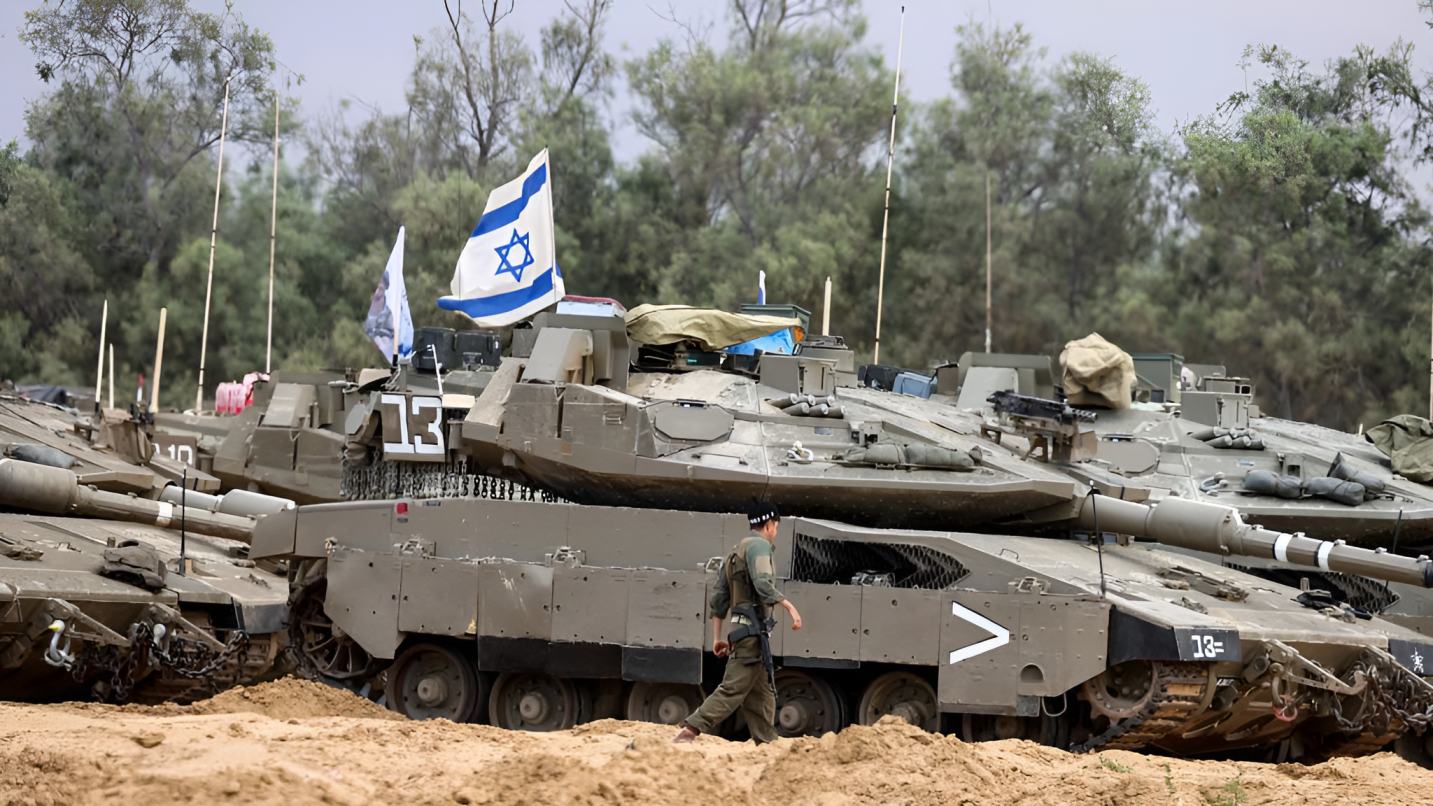Tensions escalated in northern Gaza on Sunday as the Israel Defense Forces (IDF) issued fresh evacuation orders, urging residents in parts of Gaza City and Jabalia to flee southward toward al-Mawasi.
The directive comes amid plans for intensified military operations in the area.
The Israeli military said the ongoing campaign is aimed at dismantling militant infrastructure, while medics and witnesses reported a sharp increase in air and ground assaults in the early hours of Sunday.
Local officials said residential buildings were among the targets, with scores of casualties reported.
According to Gaza's Hamas-run health ministry, at least 86 people were killed within 24 hours prior to midday Sunday.
Among the dead were three children killed in a strike on al-Mawasi an area previously designated by Israel as a “safe zone” for displaced Palestinians.
“We were asleep on the ground when they bombed us,” said Iman Abu Maarouf, who lost three of her children in the attack. Her husband, Zeyad, told Reuters the family had relocated to al-Mawasi a month ago following Israeli evacuation orders.
At least five people were reportedly killed in a strike on a tent sheltering displaced families in the same area near Khan Younis, further fueling criticism over the safety and viability of designated humanitarian zones.
As the humanitarian toll mounts, renewed diplomatic efforts are underway to secure a truce. U.S. President Donald Trump on Sunday reiterated calls for a ceasefire deal and the release of hostages still held in Gaza. “Make the deal in Gaza,” he urged, adding, “Get the hostages back.”
A day earlier, Trump had claimed on his social media platform, Truth Social, that Israeli Prime Minister Benjamin Netanyahu was currently engaged in direct negotiations with Hamas.
He also publicly supported Netanyahu, repeating his call for the corruption charges against the Israeli leader to be dropped describing them as a "political witch hunt" that he believes is stalling peace efforts.
Meanwhile, IDF spokesperson Avichay Adraee confirmed operations in northern Gaza were being stepped up, saying the aim is to “eliminate terrorists and dismantle infrastructure.”
Mediators including officials from Qatar have intensified efforts to reignite talks for a new ceasefire agreement. However, discussions remain at an impasse. A senior Hamas figure told the BBC that despite fresh pressure from Washington, a breakthrough has yet to materialize.
Qatar, which played a key role in brokering earlier truces, is banking on U.S. influence to help push both sides toward an agreement. The renewed efforts come in the aftermath of a 12-day flare-up between Israel and Iran, which ended in a ceasefire.
The last truce in Gaza collapsed in March when Israel resumed airstrikes in a bid to force Hamas into releasing hostages. At that time, Israel also imposed a complete blockade on humanitarian aid, triggering international alarm. A partial easing of the blockade came after 11 weeks, following intense pressure from the U.S. and global warnings of looming famine.
As part of the easing, Israel and the U.S. launched the Gaza Humanitarian Foundation (GHF), which was tasked with coordinating aid distribution. However, the initiative has been widely condemned by UN agencies.
Juliette Touma, a spokesperson for UNRWA, labeled it “a killing field,” insisting that only established humanitarian organizations can ensure safe aid delivery.
GHF chairman Johnnie Moore told the BBC that while deaths near aid sites had occurred, it was “not true” that all were tied to GHF operations. “Not every casualty can be attributed to our distribution points,” he said.
The original ceasefire agreement brokered earlier this year was designed to unfold in three stages. Only the first hostage release and a temporary pause in fighting was implemented. The second phase, which included a permanent ceasefire, exchange of prisoners, and full Israeli withdrawal from Gaza, never came to fruition.
Meanwhile, Netanyahu’s corruption trial has again been delayed. On Sunday, a Jerusalem court granted his request to postpone scheduled testimony due to pressing diplomatic and security matters. Netanyahu, who faces charges of bribery, fraud, and breach of trust dating back to 2019, denies any wrongdoing.
Opposition leader Yair Lapid criticized Trump’s interventions in the case, warning against interference in the judicial processes of a sovereign nation.
Israel’s offensive in Gaza began in response to the October 7, 2023, Hamas-led attack that left 1,200 Israelis dead and over 250 taken hostage. Since then, more than 56,500 Palestinians have been killed, according to figures from Gaza’s health ministry.
